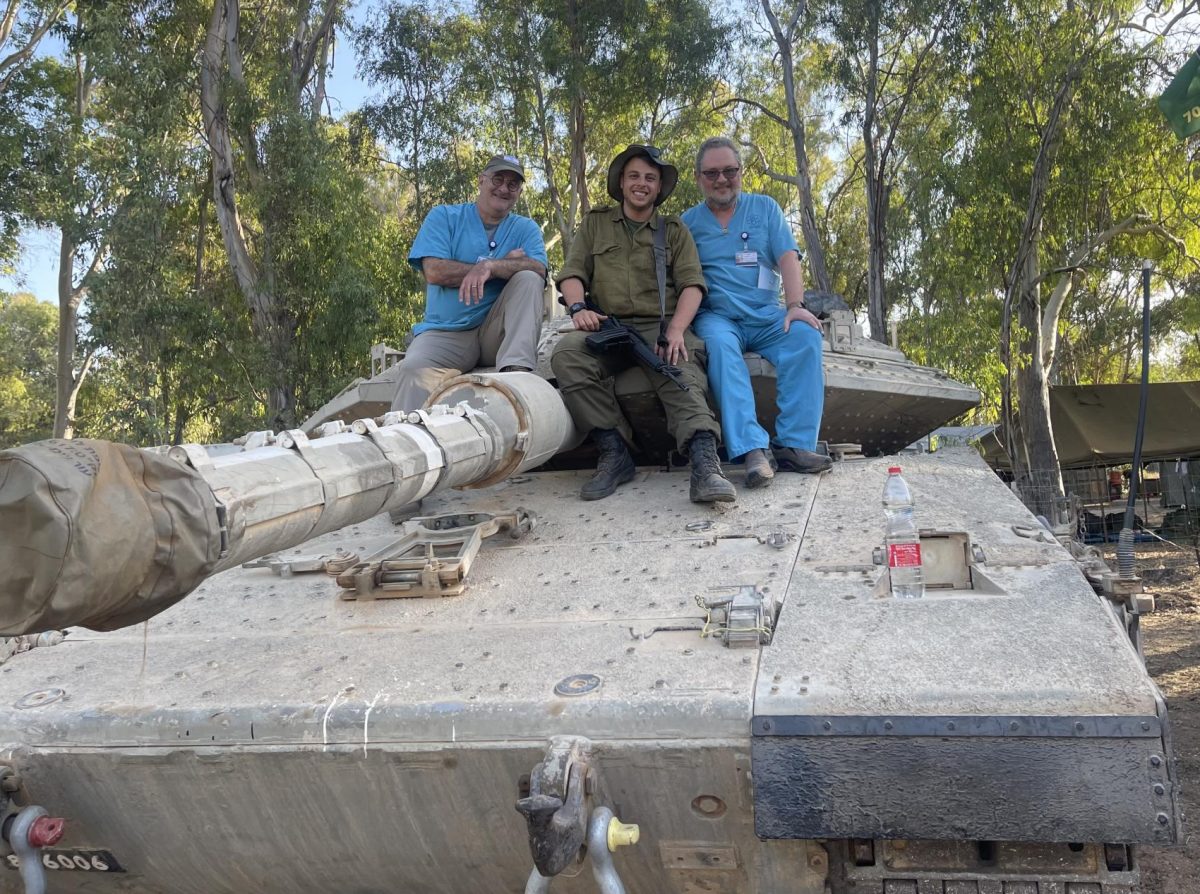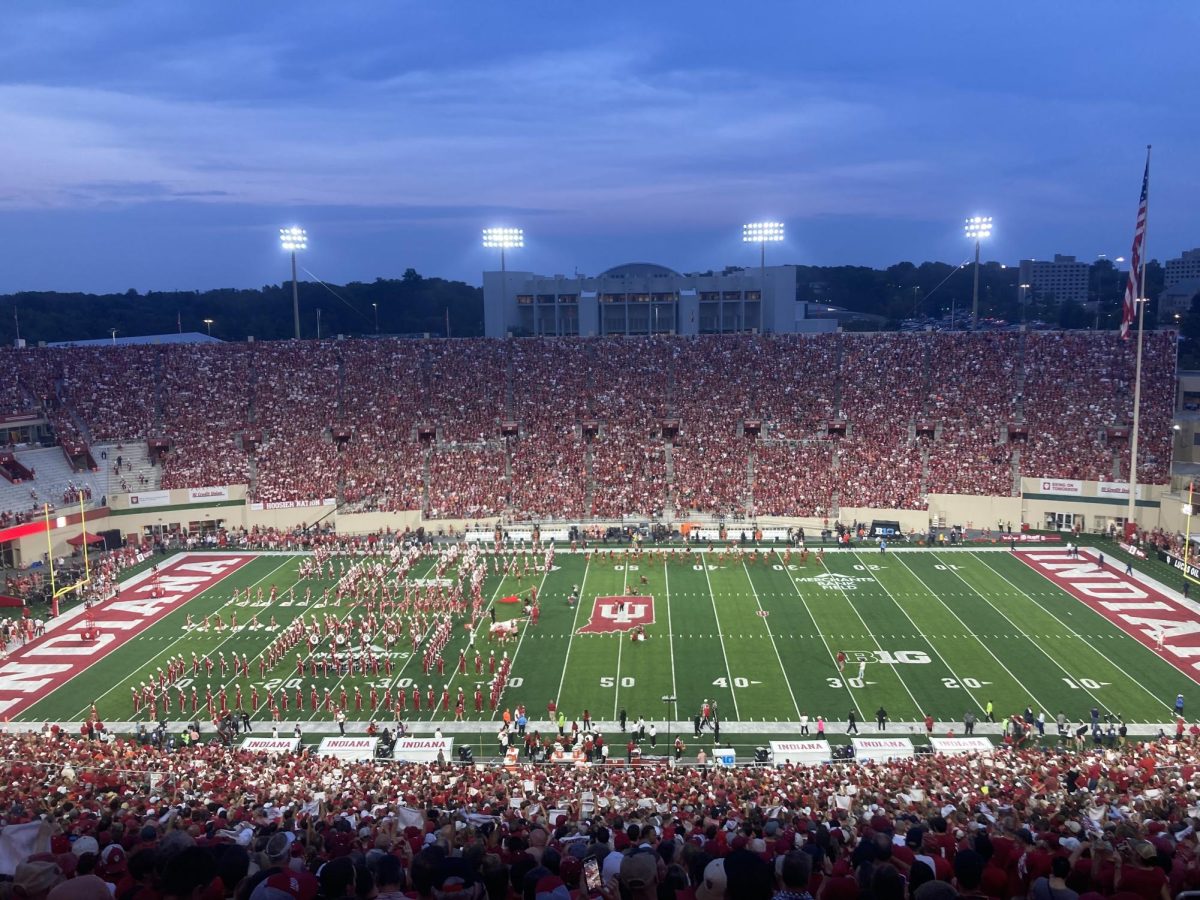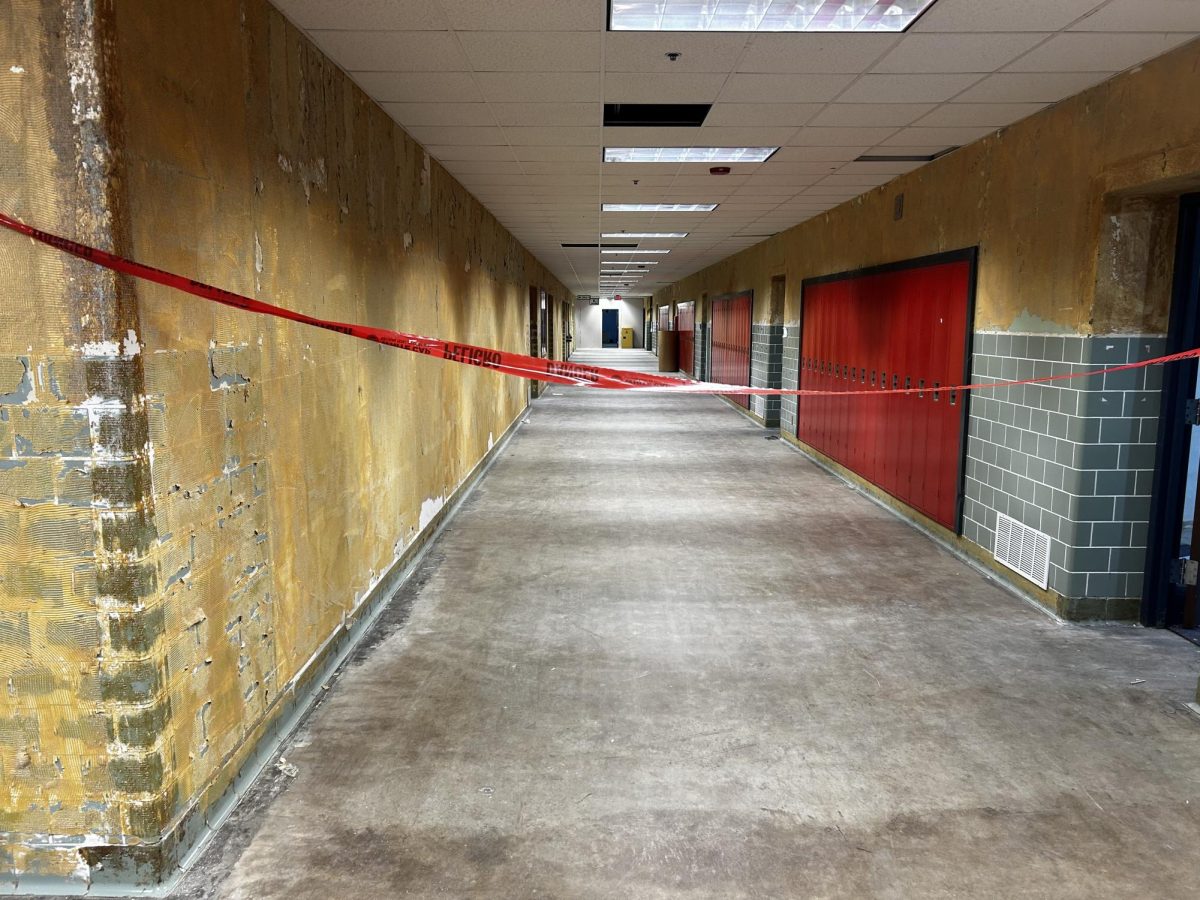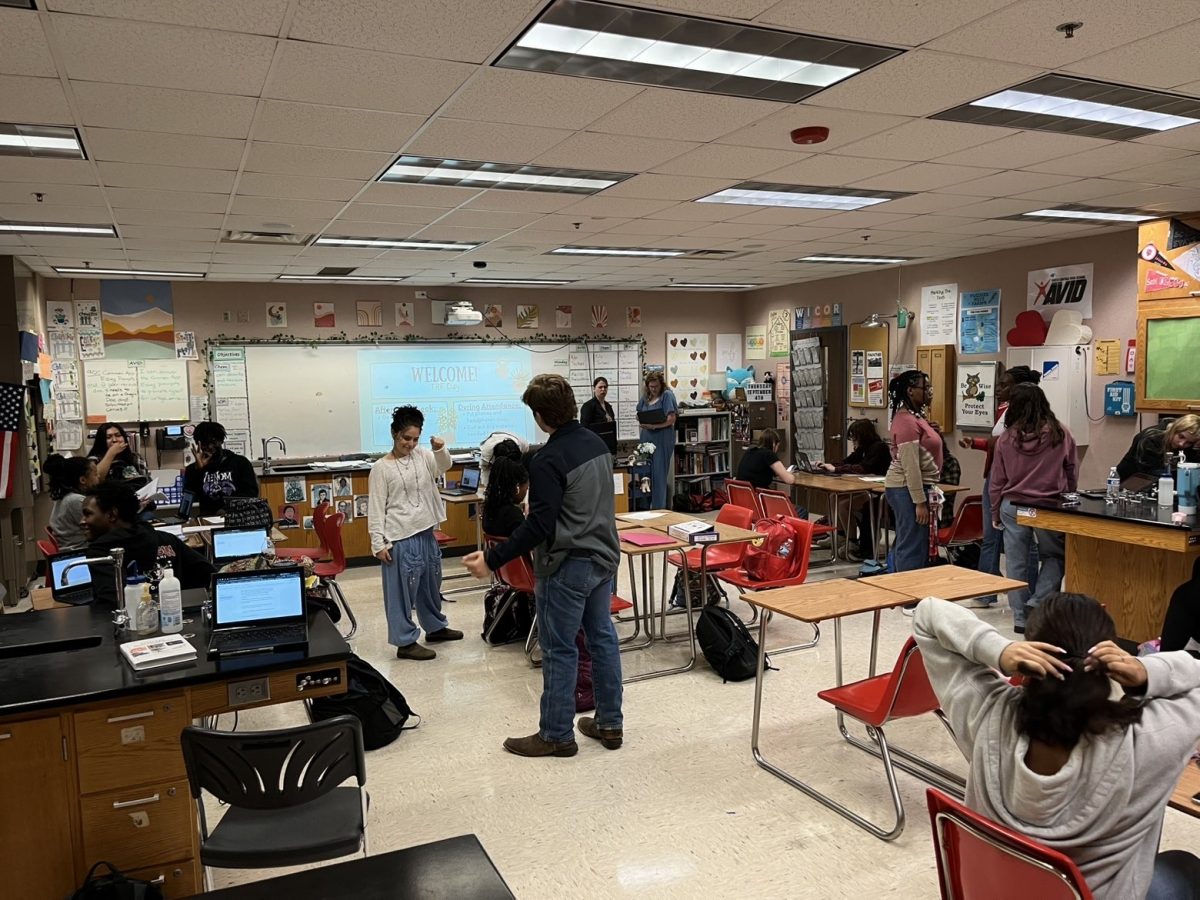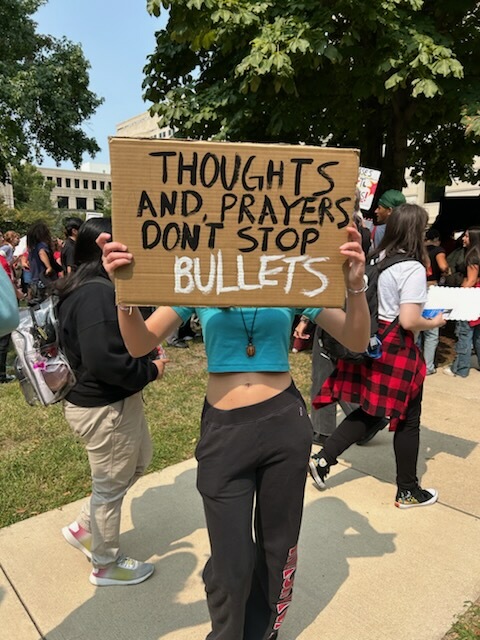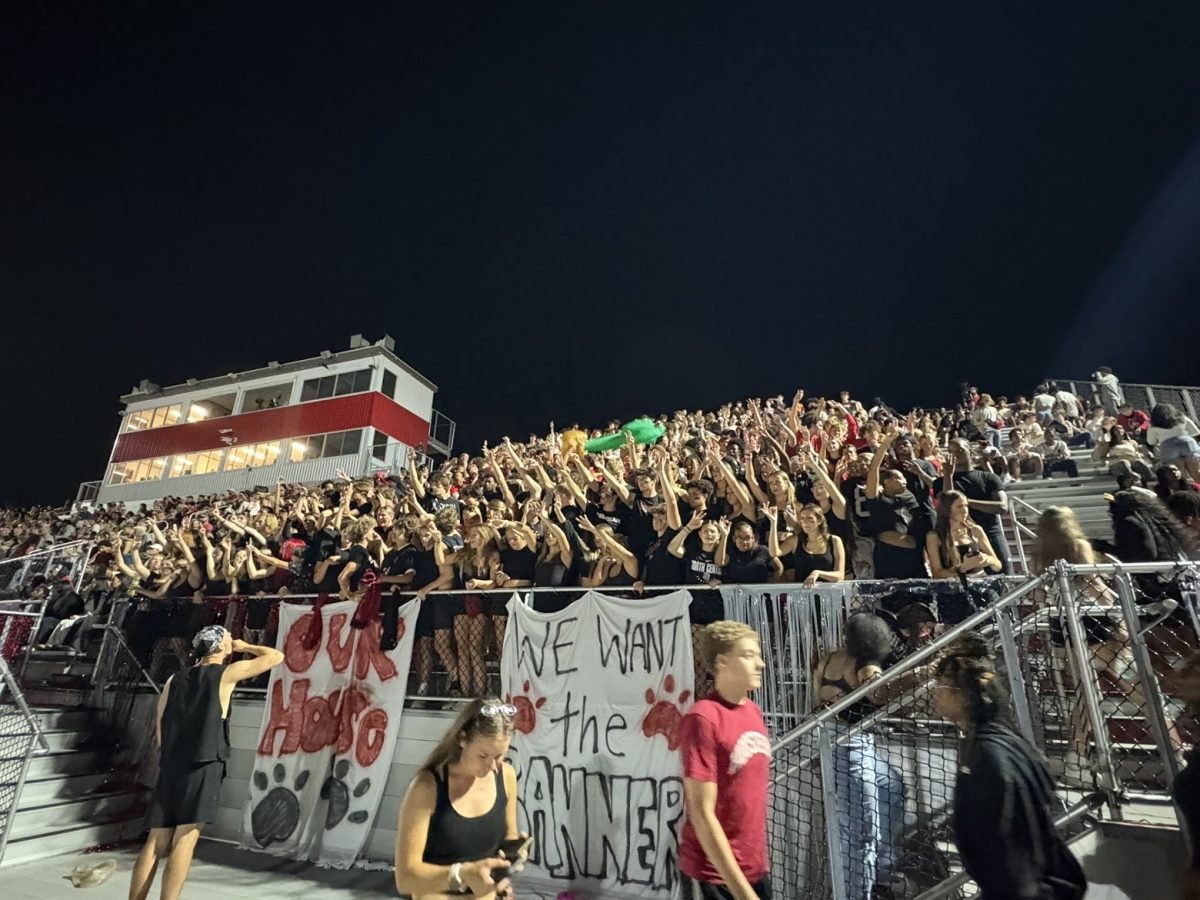After three weeks in Israel, Louis Profeta, a 1982 alum, returned to Indianapolis. Profeta works at Ascension St. Vincent as an emergency physician and is a nationally recognized, award-winning writer.
According to Profeta, he was one of more than 6,000 American doctors registered to volunteer in the hospitals and clinics in Israel. Profeta felt compelled to help for many reasons, including his valuable skills and personal connection to the conflict.
“I am Jewish,” Profeta said,” Israel is our most important ally. I believe this is a noble cause, the right side of history. I have a good skill set. I felt I needed to help.”
Apart from his skill, Profeta was aware of the possibility of new conflict fronts opening from Hezbollah.
“Israel believed there was going to be another military front with Hezbollah on the north and Lebanon because they had been launching rockets over the years into northern Israel,” Profeta said, “Hezbollah has a lot more sophisticated rocketry than Gaza does because it is Iran based. They were worried about mass casualty events caused by rockets hitting civilians.”
Once in Israel, Profeta began work at Western Galilee Hospital in Nahariya, Israel, a hospital he had become familiar with 15 years prior.
“I had been to that hospital for a mass casualty counterterrorism course,” Profeta said, “I brought their protocols back. We use a modified version of their mass casualty protocol here. Their plans are very sophisticated.”
Despite knowing the location and why they needed him, Profeta did not know his duties. Upon arriving, he learned that he would be responsible for helping the younger doctors at Western Galilee.
“I was there just in case we had a lot of mass casualties,” Profeta said, “I was also helping train some of the junior doctors that had just come out of medical school. I taught them how to do chest tubes, how to do ultrasounds, get IV access, and those types of procedures. I was in a backup role. Fortunately, they did not have to utilize me in that capacity.”
Though being in the hospital was familiar territory for Profeta, the realities of working in a war zone were not.
“I did not sleep because outgoing artillery would constantly wake me up,” Profeta said, “Then you would have the missile alarms and sirens go off. You have to go into–or at least attempt to reach–the bomb shelter, but after the third time, I was too old and tired. I would sleep on and off in the hotel and get to the hospital early in the morning.”
Beyond his medical duties, Profeta witnessed how the conflict disrupted everyday life in Israel, even affecting farming communities.
“One day, all of us went to one of the kibbutzes and helped pick produce because all of the migrant workers had fled because of the war,” Profeta said, “We went and picked tomatoes and zucchinis and did other things like that. A lot of your farming communities are right within the missile range of Gaza. They have no one to pick the produce.”
Through these experiences, one was most impactful on Profeta: visiting Reim.
“You could still smell the rot in the air,” Profeta said, “The burned-out cars still had human remains in them because they could not get all the body parts and the ashes out of the cars. Simply being where all they murdered young people, feeling the death in the air, knowing that right where I stood, kids were brutalized, butchered, raped, blown up with grenades… there is nothing that justifies that.”
Profeta’s first-hand experience of the damages of war gave him a perspective on the reality of the people in Israel. From this, he developed a new respect for the power of a person’s will.
“The resiliency of the human spirit and the ability of people to come together is astounding, especially in a country like that,” Profeta said, “When you look at the population of Israel, in many ways, it’s one big family. Everybody knows somebody taken hostage, or murdered, or who they are just one degree of separation from.”
Not only has Profeta experienced the strength of the Israelis, he has seen the impacts of a
war–negative and positive.
“This is a horrible time,” Profeta said, “It is a horrible time to be Jewish, yet it is a rewarding time to be Jewish. We had a big division in this country and probably worldwide, just like America does in terms of left and right. I have never seen Jews work united over one singular issue in my entire life, but it is happening now.”
The unity and culture Profeta was engulfed in while in Israel proved to be a drastic difference from the culture in the United States.
“Over 50% of the population there is currently volunteering in their capacity right now,” Profeta said, “Can you imagine 50% of Americans coming together to volunteer for anything? It would not happen here.”
Profeta was not the only volunteer to appreciate this differentiation. Some volunteers, including a doctor from San Francisco, have considered a permanent move to Israel.
“I texted her to see how she was doing,” Profeta said, “Her response was: ‘I didn’t book a return flight. I’m not sure I’m gonna come back. I think I’m going to stay. I’ve never been to Israel, yet I have never felt more like I belong to a family, that I am a part of an important cause, an important point in history. I think I need to stay here and build something up.’”
Her comments allowed Profeta to reflect on the realities at home in the US. He concedes that much of the unrest in the US is due to those living in the United States who do not appreciate the privileges they have.
“We are a fallible country, but we have also liberated more people from despotism and slavery and oppression than any country in the history of the world,” Profeta said, “This is a good country. Israel mirrors this country. Many believe we are the source of everything bad worldwide. It is not true. Students do not realize how good it is here compared to everywhere else.”
Nonetheless, Profeta is dealing with the same inclination of returning to Israel. If he receives a call back, he will not hesitate to continue his mission of assisting.
“I am just waiting to see if they need me because if they do, I will be on a plane,” Profeta said, “Gone. Right back where I was.”

